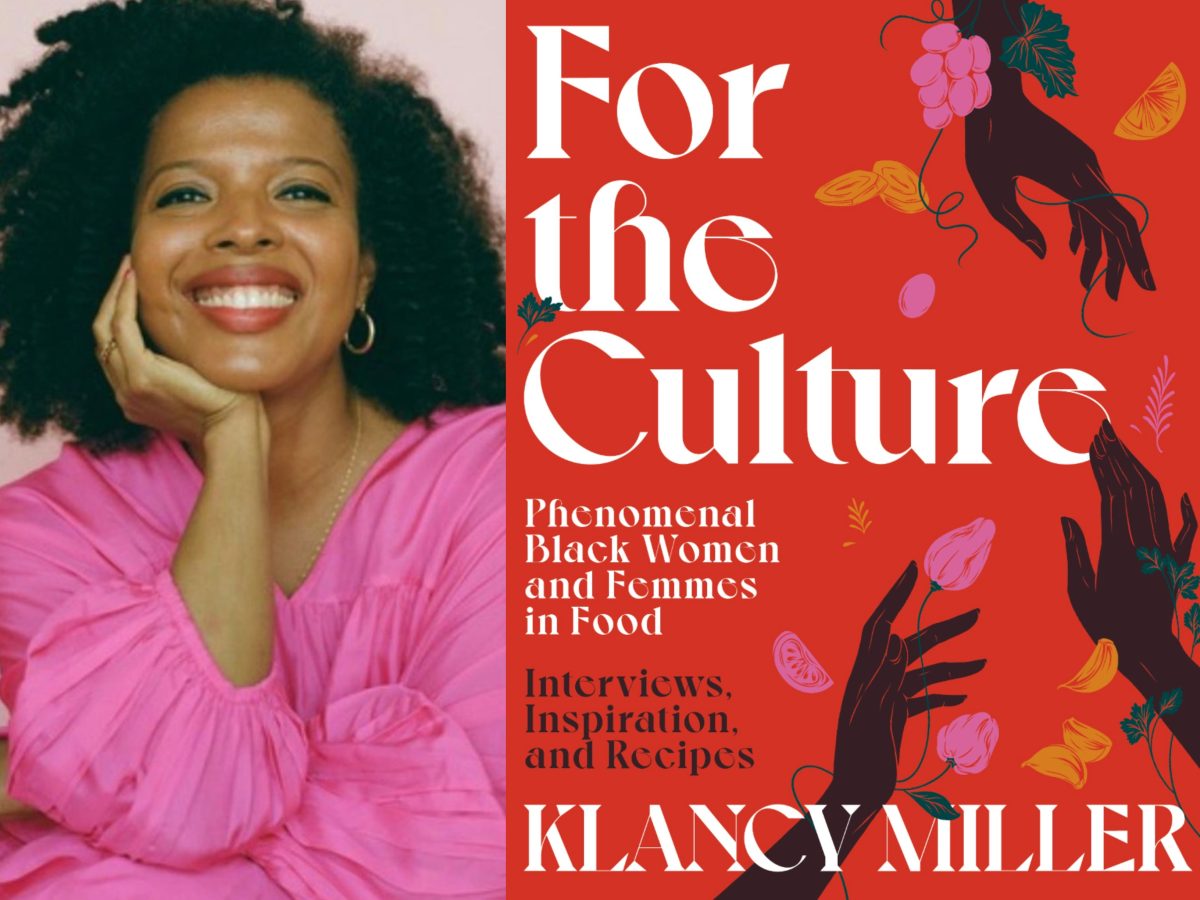
Klancy Miller‘s path to creating the new book For The Culture: Phenomenal Black Women & Femmes in Food (Harvest; $40), was born from her own experiences as a Black woman in the culinary world. Prior to entering that industry, she finished college and found herself unsure of the path forward. Despite having majored in history, she found herself developing a deep appreciation for food.
“I went to college, graduated, and didn’t quite know what I wanted to do,” Miller recalls. “I considered it an adventure when I finished school, experimenting with dance, acting, filmmaking, and cooking classes on weekends to discover my passion. Cooking stuck with me.”
This eventually led her to culinary school in France. During her journey in Paris, she realized there was a lack of Black women within the industry at the time for her to learn from — or at least, ones who were being recognized. “I didn’t really have that many Black women role models,” she says. “I knew about B. Smith. I would say she was probably my number one role model, but other than B. Smith, I didn’t know about that many people.”
The opportunity to highlight trailblazers came years later while working as a food writer. She was initially approached about a project that aimed to focus on Black women and their profound contributions to the culinary world. Those plans would fall through, but Miller was inspired to create the food magazine For the Culture and ultimately, the book of the same name, which was released on Sept. 19. She was motivated by the power of representation.
“I want people to see people who look like them doing things they want to do,” she says. “If you can see it, you can achieve it.”
The work is a tapestry woven with diverse threads, featuring a spectrum of Black women and femmes hailing from different corners of the globe and spanning various age groups. From classic chefs like Lena Richard to contemporary tastemakers like Kia Damon and more.
“Carla Hall is in the book. Jessica B. Harris, Sophia Roe. There are people with large followings and then there are people who are, you know, up-and-comers,” she says. “I very much was deliberate in making sure that it’s a book that has women from all over the world, from throughout the diaspora and different age ranges.”
Through her heartfelt interviews with these remarkable individuals, Miller delved into topics outside of just cooking. Notably, she was deeply intrigued by insights offered into mental health and how the women practice self-care and truly live life outside of the kitchen. She was also inspired by the ability of these extraordinary women to adapt and innovate at different junctures in their careers. She admired their creativity, resilience, and their knack for switching gears when life’s circumstances shifted.
Moreover, as the title states, she found joy in covering the impact of not just our food, but specifically, the contributions of Black women on the culture as well.
“Food is culture, food is part of culture, and Black women in this country and in many countries are at the heart of the food systems and food making and cooking,” she says. “And so I wanted to highlight our place in culture, for the culture. We are culture makers, and this work is for the culture at large.”
She adds, “Centering these stories, these narratives, that is a gift for the culture.”
She hopes that in addition to inspiring the next generation of Black women in food, For the Culture will motivate people, in general, to actively seek out and amplify the stories of Black women and femmes. She believes that supporting Black women’s voices, whether in storytelling like her book, through TV and characters like Sydney on the popular FX series The Bear, and in leadership roles, is imperative in allowing us to be our complete, multi-faceted selves.
“For us to get to have these stories, ’cause our stories are super rich, and to be able to inhabit them on the page, on the screen, that’s like a dream for me, for us to just be, but also, get to be the center,” she says. “I want us to get to have our perspective shown and our multiplicity celebrated.”
Miller also stresses the importance of spreading the message of inclusivity and representation, even when you’re not creating it, by supporting it. “Amplifying stories of Black women and femmes, even if you yourself are not a storyteller, but just seeking out these stories or amplifying them in what you post or what you purchase, that’s a really big deal.”
Looking ahead, Miller has another exciting book project in the works and looks forward to creating more issues of For the Culture mag, establishing deeper connections with her readers, and further illuminating the remarkable narratives of Black women and femmes in the culinary sphere.
Klancy Miller’s For the Culture transcends the boundaries of a mere cookbook; it is a celebration of storytelling, empowerment, and resilience. It stands as a testament to the rich tapestry of Black women and femmes within the culinary world, inviting everyone to join in centering and recognizing their extraordinary contributions to our global culinary heritage.